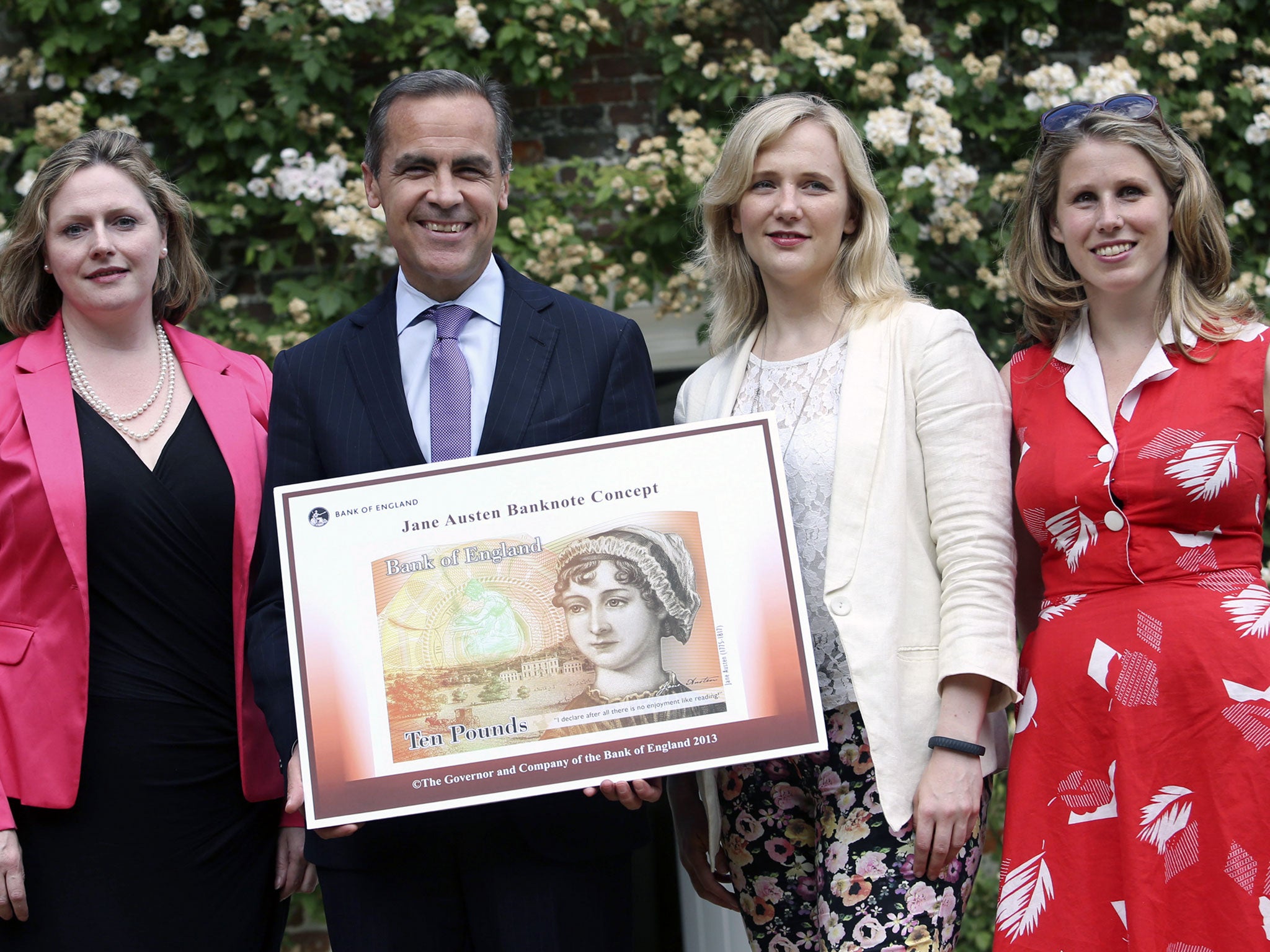Sexism in Parliament: Where are all the women - and how can Westminster change Britain when it can't change itself?
Westminster makes laws on employment and discrimination, but practises appalling inequality and rampant sexism in its own workplace

Your support helps us to tell the story
From reproductive rights to climate change to Big Tech, The Independent is on the ground when the story is developing. Whether it's investigating the financials of Elon Musk's pro-Trump PAC or producing our latest documentary, 'The A Word', which shines a light on the American women fighting for reproductive rights, we know how important it is to parse out the facts from the messaging.
At such a critical moment in US history, we need reporters on the ground. Your donation allows us to keep sending journalists to speak to both sides of the story.
The Independent is trusted by Americans across the entire political spectrum. And unlike many other quality news outlets, we choose not to lock Americans out of our reporting and analysis with paywalls. We believe quality journalism should be available to everyone, paid for by those who can afford it.
Your support makes all the difference.It’s hard to credit in 2014, but it’s true: there’s still a major British workplace, one of the country’s best-known brands, where women have no right to take maternity leave. If they do have children, they tend to find that their shift patterns are deeply inflexible, making it all but impossible to maintain a normal family life at the same time as doing the job properly – a difficult thing when there’s still a prevailing assumption that they, and not their husbands, should be the ones to shoulder the greater part of the burden at home.
Considering all of that, it’s perhaps not surprising that there are still some men who work there who think they can get away with deeply creepy behaviour – behaviour that, almost anywhere else, would get them sacked. In this workplace, it’s not even clear who you would report it to.
You may ask: if those women are getting such a crappy deal, and if nothing much is changing, can’t anyone else do anything about it? Why can’t Parliament act, for instance? And it’s a good question, albeit one with a slightly confounding answer. The reason Parliament can’t act is both simple and complicated. Parliament can’t act because it’s the very place with the problem.
It has been a bad week for women, and a bad week for the Liberal Democrats, but it has been just as bad for the institution in which they are both minority groups, where a persistent status quo that you might have hoped would have expired in the last century has been brought into depressing relief. The MP Mike Hancock has been suspended fully three years after the Liberal Democrats were notified of claims that he had sexually assaulted a vulnerable constituent; the Lord Rennard affair, meanwhile, has rumbled inexorably onwards, every day seeming to widen the rift between those who see the allegations as deeply shocking and those who think they are no big deal.
If you were looking for a nadir, you had plenty of options; my own selection would be the intervention from Lord Rennard’s close friend, Lib Dem MEP Chris Davies, who suggested that the allegations were inconsequential because they involved touching someone’s leg “through clothing”, an action that “is the equivalent of a few years ago an Italian man pinching a woman’s bottom”. I asked every female Lib Dem MP for their opinions on all this. None was available.
You can be sure that in most other workplaces, anyone making such claims would have them dealt with quickly and straightforwardly; businesses are too frightened of lawsuits from their employees for it to be any other way. But in Parliament, it’s different. Bizarrely enough, MPs are technically self-employed, and so have no bosses to sue – and anyhow, their options for exit are limited. A female RBS staffer can always apply to HSBC, but it’s not so straightforward to jump ship for another legislature. Nor are the basic ingredients for disaster here likely to be confined to the Liberal Democrats. The House of Commons surely seems a still less palatable place to work today than it did a week ago for women of all political persuasions.

Cathy Newman, the Channel 4 News journalist who broke the Rennard story, says that at first, she thought that the exposure of the allegations would be a helpful step for the status of women in Parliament. Now she’s not so sure. “After the last week, I feel less positive,” she says. “If you were a woman in Westminster who had been harassed in the way these women allege they were, you would now think, do I really want to report it? Is it worth my while?” She pauses. “I’ve been working in and around Westminster for the best part of 20 years, and when I first joined I saw it was very unequal, but I just assumed it would be a level playing field pretty quickly. And, in fact, progress has been glacial.”
Even allowing for the suggestion that one woman’s harassment is another man’s touching-through-clothing, allegations like those against Rennard and Hancock are disturbing. And women with considerable experience of Parliament say that not all of their male colleagues seem able to treat them with the seriousness they are due. One common theme is the deep confusion of meeting someone young and female who demands to be treated as an equal; Stella Creasy, for example, has described being mistaken for a researcher by a grouchy Tory minister, Andrew Robathan.

Luciana Berger, the Labour shadow minister for public health who entered Parliament in 2010, suggests that such confusion is a damning indictment of the sheer numerical imbalance – with only 23 per cent of MPs female. “I’ve been in all sorts of workplaces where I haven’t felt in a minority, and here it feels as if we’re a minority and a novelty,” she says. “As long as Parliament doesn’t represent society, it’s going to feel weird.”
Even when women are correctly identified as legislators, they are not always treated quite as you might assume. One former MP describes a member sitting opposite who told her after a debate of his satisfaction at the view down her top when she reached into her handbag. On another occasion, a different MP told her that he and a colleague, again members of another party, had been taking bets on what she would wear. “Oh, that’s interesting,” she remembers telling him. “If we worked anywhere else, you’d be fired.”
That exchange points up one of the governing peculiarities of Westminster, where many of your “colleagues” in fact work for someone completely different. Along with self-employment (which also has complicated consequences for maternity leave, which is actually easier for ministers to arrange than backbenchers), this means that the structures of accountability which you might expect in an ordinary office are not in place. If a member of your own party is being a creep, there are people you can tell. But you can see why you might fear even that move could be professionally costly – and if this is difficult, how confident is any woman likely to be about making representations to bitter political opponents?
The situation is made still worse when so many politicians effectively have jobs for life – certainly the peers, and many in the House of Commons in safe seats. “They are just less worried about being held accountable than others would be,” she says. “If no one can force you out, what is the impact of behaviour that could damage your reputation? For some people, there is none.” She thinks back. “Of the issues that I had, I think every single one of those people was in a pretty safe seat.”
This dysfunctional environment lost another female voice last week, when Jessica Lee, the Tory MP for Erewash, announced that she would be standing down at the next election. She’s the fourth Tory woman of the 2010 intake to decide on a change of direction – and while 15 men from that intake have made the same decision, they account for a smaller percentage of their gender group. There have been dark warnings of a trend, but Lee (who declined to comment) has personal reasons for leaving, and neither she nor any of her colleagues (including Louise Mensch) has suggested that sexism has anything to do with it. Nan Sloane, director of the Centre for Women and Democracy, cautions that “it’s hard at the moment to say it establishes a definite pattern – there is a tendency to jump to conclusions based on very little evidence”.

All the same, it doesn’t help with the depressing imbalance between the genders – 23 per cent of MPs are women. It is hard to know what the policy consequences would be of a better balance. As Cathy Newman points out: “We don’t know what the difference would be because we don’t have enough women there to draw generalised conclusions.” But, at least as far as working conditions go, it seems safe to assume that more women would mean a more hospitable environment. “If Parliament was 50-50, it would be a completely different place,” says Sloane. “There would be a huge change to these arcane practices.”
Brooks Newmark, the (male) Conservative MP who is one of that party’s leading voices in the battle to elect more women through the campaign Women2Win, points out that the process is a “virtuous circle”. “When we only had 17 women MPs, it was hard for them to percolate to the top,” he says. “With 49 we’re beginning to see it. But we need more role models. We need more associations to see them and think, yes, that’s what we want here.” Passionate though Newmark is, it’s hard to detect an especially optimistic note in his voice. He used to wear a badge that read “50-50 by 2020”. He doesn’t wear it any more.
One indication of the uphill battle that remains for efforts to make the House of Commons more accessible for people who have families to care for – which is, of course, still synonymous with “women” – came in the 2012 vote to adjust working hours on a Tuesday so that, instead of ending business at the absurd hour of 10.30pm, they start earlier and finish by 7pm. The remarkable thing, says Berger, is that such a common-sense measure “only very narrowly passed”, by 267 votes to 233. “Some of the arguments were bizarre,” she adds. “You hear people saying, well, what am I going to do in my evenings?”
To all of this there is a common retort: politics is not like other walks of life. It’s a blood sport. If you can’t hack it, then you should probably be doing something else. At this, Cathy Newman, not exactly the retiring type, snorts derisively. “I hate that viewpoint,” she says. “Of course if you’re a shrinking violet, Westminster isn’t for you. It’s rough and tumble. But that’s not the same thing as saying you should have to put up with behaviour that singles you out because of your gender.” As Stella Creasy put it on Newsnight: “Why should women adapt to sexual harassment?”
It isn’t, after all, simply a matter of self-interest. The Rennard and Hancock allegations, and other iniquities, are not only ugly for the women involved; they are an ugly stain on our public life, and they cannot help but set a tone. “We’re making the laws of the land,” says Berger. “That makes it incumbent on us to do everything we can to encourage women. Parliament should be setting an example.”
Join our commenting forum
Join thought-provoking conversations, follow other Independent readers and see their replies
Comments